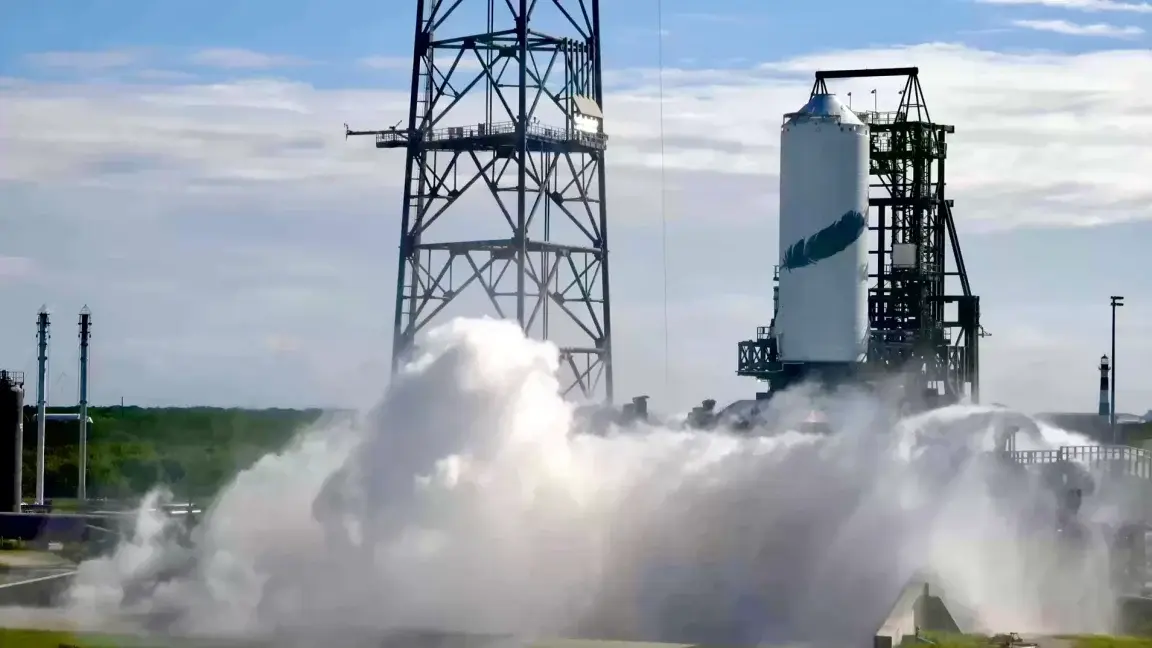Jeff Bezos on the cusp of achieving 1950s Soviet Union levels of technology.
Hey, it’s more like a big Vulcan with little legs.
His engines have already powered a new launch vehicle to orbit.
That also makes the BE-4 the first US methane fueled engine to achieve orbit, and the second in the world.
Real work in space flight actually takes time, because real engineering takes time.
SpaceX has duped everyone into thinking that the Silicon Valley “move fast and break things” strategy should apply to rockets. But look at Blue Origin: they’re already selling commercially viable engines, they’ve conducted many static fires to verify and test the capabilities of their engine, and unlike SpaceX , they haven’t blown up 2 entire rockets to do it, which saves my tax dollars.
Spaceflight is hard, the engineering is complicated, it takes time and money. I’d rather a private space company, which I don’t even think should exist, be at least careful when it comes to such a dangerous thing. I’m almost certain that SpaceX is going to get people killed with the starship, just like OceanGate did.
unlike SpaceX , they haven’t blown up 2 entire rockets to do it, which saves my tax dollars
Haven’t SpaceX done all of those tests on their own dime? I’m pretty sure all of their government contracts are fixed-price, not cost-plus.
Nope, they were awarded 3 billion dollars to develop the Human Landing System, which is the Starship they’re supposed to use for the moon landing.
Why 3 billion dollars?
Because Kathy Lueders, the interim director at NASA at the time, called SpaceX and told them if they could get their proposal down to 3 billion, it would be approved. No other contractor was given this call. When SpaceX submitted the revised proposal, Lueders unilaterally approved SpaceX for the contract.
Kathy Lueders is now the manager of Starbase Texas, SpaceX’s private launch facility. She was hired six months after she approved the contract.
Oh, and recently the Government Accountability Office released a report that the Raptor engine, which powers starship, does not have the performance required to do the mission anyway. But this has largely gone unmentioned, because the GAO is largely a toothless organization.
You’re right in that the contract is Fixed-cost, so if SpaceX blows up too many rockets and burns through that 3 billion, they are left holding the bag. But SpaceX did receive that money and are spending it to develop Starship.
I love Space, it’s been a passion of mine since I was a kid. I love learning about space, and learning how all these launch vehicles work. Rockets are really fucking cool. I want the Starship to be everything they say it is, it would be a powerful tool for making Spaceflight cheaper and easier. But the more I’ve learned about the history of spacecraft development, and the more I’ve learned about Starship in particular, the more concerned I’ve been. Starship is ludicrously complicated, even compared to a similar vehicle like the Space Shuttle. And the fact that it looks like SpaceX was awarded the contract to make Starship not on merit but though a corrupt deal where the director of nasa called and told them the price tag, and then took a job from SpaceX less than a year later, just makes me incredibly jaded with the whole project. The develop approach is concerning given they are spending US tax dollars, the design of the craft is concerning given the complexity it adds to an already complex mission. Everything comes together to make me think that because of this, we may not have humans back on the moon anytime soon. We need someone at the GAO or NASA to take a serious look at what SpaceX is doing to develop this lander, why it’s failing to test all of the hardware needed for the Artemis mission, and why they are now several years behind schedule on a multi-billion dollar contract.




